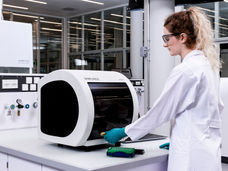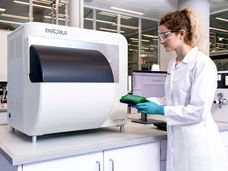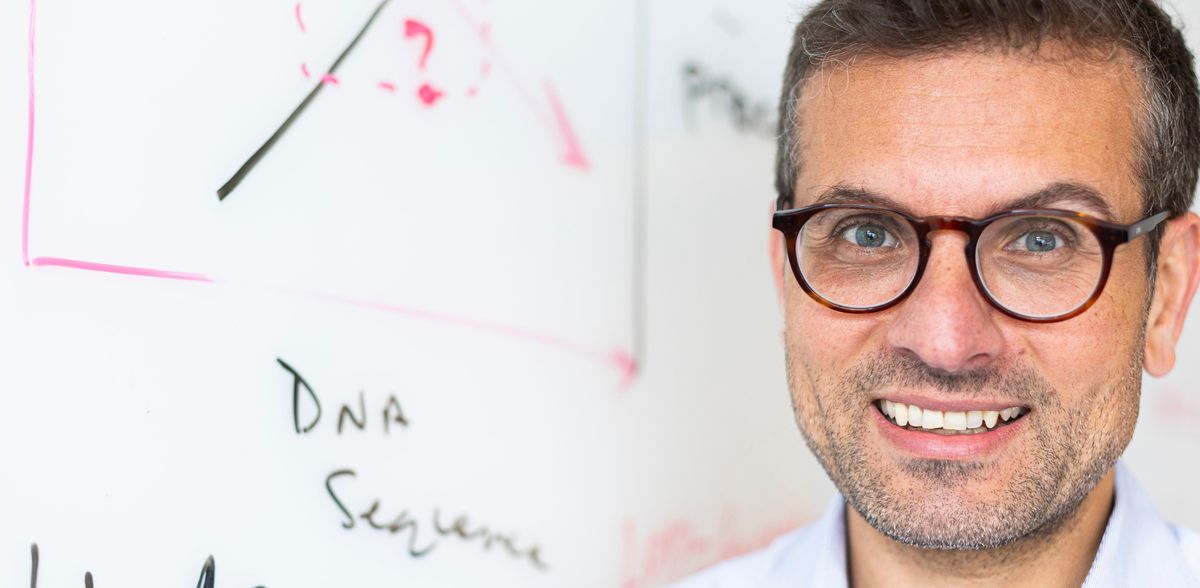Future Insight Prize 2023 Awarded to Khalid Salaita for Early Detection of Pandemics
Khalid Salaita awarded a research grant for the development of sensors to detect pathogens automated by DNA motors
Merck awarded Khalid Salaita, Samuel Candler Dobbs Professor in the Department of Chemistry at Emory University, Atlanta, Georgia, U.S.A., with the Future Insight Prize 2023 worth € 500,000 for research on a pandemic early alert system. Salaita’s group is developing a novel platform technology for automated surveillance and tracing of airborne pathogens in real time.
“The importance of being prepared has been a key lesson from the Covid-19 pandemic. There are many promising collaborations to build an inclusive global framework for pandemic preparedness, but we still lack an effective early warning system to detect potential threats before it is too late,” Belén Garijo, Chair of the Executive Board and CEO of Merck, said. “The pioneering work of Khalid Salaita could help fill this urgent gap in our global defenses. We are confident that the Future Insight Prize 2023 will help to accelerate his efforts to develop this highly promising technology.”
“I am extremely grateful for being awarded the Future Insight Prize 2023 as this enables us to continue our path towards an early warning system for emerging threats,” Khalid Salaita said in Darmstadt on Tuesday. “Our research sets the stage for using DNA motors that allow fully automated detection of pathogens without human intervention or sample processing. Importantly, the signal can be transduced using a cell phone.”
Salaita’s research group has developed a DNA rolling system as the technological centerpiece of the proposed pandemic early alert system. The moving DNA particles are propelled by enzymatic consumption of an RNA fuel source. The DNA motors developed in Salaita’s laboratory can carry many copies of DNA cargo with velocities of up to 100 nm/min. Such motors hold promise in biosensing, molecular computing, creating synthetic cells and now to systematically test structure-function relationships at the nanoscale.
The Atlanta-based researchers went one step further and tested the idea with SARS-CoV-2. Using DNA motors they developed a mechanical-based viral sensing platform called Rolosense which is advantageous, as it reduces cost and simplifies the instrumentation needed for readout. In this research they were able to detect SARS-CoV-2. The signal was transduced using a cell phone in real time and with GPS coordinates. Next steps for Salaita’s research group on the currently very early-stage system will include the screening and identification of high-affinity and high-specificity virus binding ligands. They will be tested against a panel of pathogens. Microfluidic chips for airborne droplet capture will also be tested and implemented.
Salaita (44) started research on the topics he was recognized for today as an Assistant Professor of Chemistry at Emory University in 2009. He did his PhD thesis from 2001 to 2006 at Northwestern University, Evanston, Illinois, U.S.A., and worked as a Postdoctoral Fellow from 2006 to 2009 in the Department of Chemistry at the University of California, Berkeley, California, U.S.A.
The Future Insight Prize puts forth a vision for ambitious dream products and is intended to trigger curiosity and creativity worldwide on how to make this vision a reality. The winner of the Future Insight Prize is selected by a jury comprising more than 80 renowned top scientists from different research fields – including many Nobel laureates. Merck first announced the prize in 2018. It is planned to award the Future Insight Prize 2024 on research in fighting future pandemics with artificial intelligence.
Other news from the department people
These products might interest you

Octet R2 / Octet R4 / Octet R8 by Sartorius
Full power on 2, 4 or 8 channels: Label-free and GxP-compliant analysis of molecular interactions
Innovative label-free real-time protein quantification, binding kinetics and rapid screenings

Octet RH16 and RH96 by Sartorius
Efficient protein analysis for process optimisation and manufacturing control in high-throughput
Label-free protein quantification and characterization of protein-protein interactions

Octet SF3 by Sartorius
Surface Plasmon Resonance (SPR) using Single Dynamic Injections for Kinetics and Affinities
Curvature is Key - Adding a ‘Third Dimension’ to the Binding Curve

Get the life science industry in your inbox
By submitting this form you agree that LUMITOS AG will send you the newsletter(s) selected above by email. Your data will not be passed on to third parties. Your data will be stored and processed in accordance with our data protection regulations. LUMITOS may contact you by email for the purpose of advertising or market and opinion surveys. You can revoke your consent at any time without giving reasons to LUMITOS AG, Ernst-Augustin-Str. 2, 12489 Berlin, Germany or by e-mail at revoke@lumitos.com with effect for the future. In addition, each email contains a link to unsubscribe from the corresponding newsletter.






















































